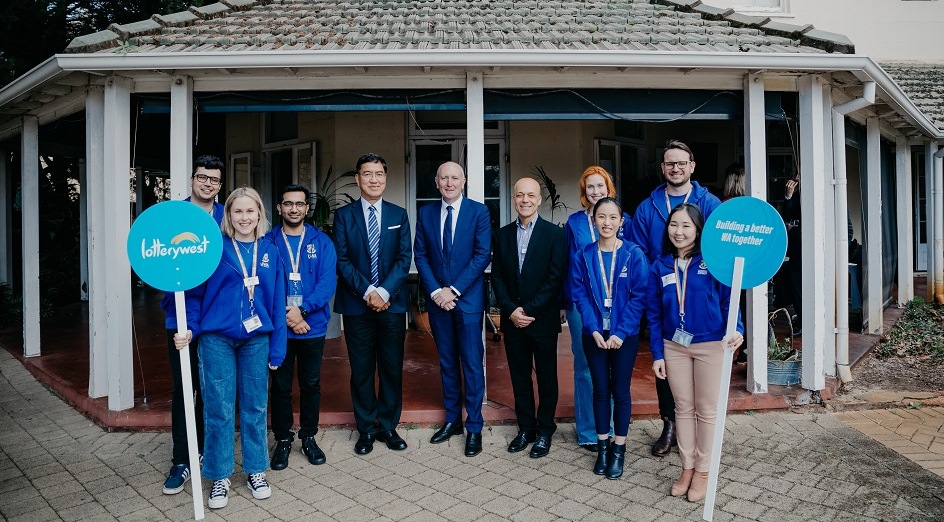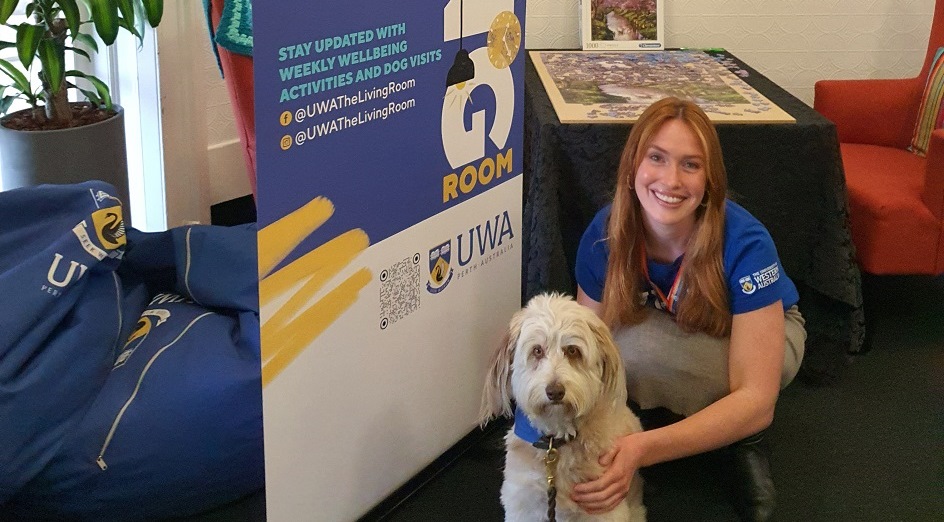There are few moments more inspiring than a community act of collective generosity and kindness to support those affected by crisis. In the past 18 months, our UWA community has come together to support The Living Room – a unique on-campus student health and wellbeing ‘safe space’ that provides low barrier, peer-to-peer support for students who are struggling with their mental health.
With one in five Australian adults suffering from mental health issues each year, driven by external stressors such as the COVID-19 pandemic and uncertainty about the future, such support is increasingly in demand. The transition to higher education – a time of sharp emotional, social and academic adjustment that coincides with the peak age of onset for mental health problems – can leave many students requiring professional support. Unfortunately, many students do not seek professional help, or face significant barriers, leaving at-risk students without access to timely and effective support.
The Living Room responds directly to this need and is believed to be the first initiative of its kind on a university campus in Australia. The service is managed by mental health professionals and staffed by student peer supporters, who provide a range of services from emergency response for severe psychological distress to weekly wellbeing activities for students, such as yoga, mindfulness and ‘Pause with Paws’.
Please note: The Living Room has temporarily relocated to ground floor in Reid Library for the coming weeks.

The UWA community has come together to support The Living Room
In its first 12 months, The Living Room has helped shift the thinking and acceptance of seeking mental health support within the student body. The ongoing conversation between students, UWA staff and The Living Room team has enabled data, experience and feedback to inform the service, allowing it to adapt and respond to student needs.
UWA Student Guild President Emma Mezger said The Living Room had proved immensely popular with students in its first year, with the team of student peer supporters providing a warm and welcoming environment for all students and helping to cultivate a sense of belonging and wellbeing on campus.
“The Living Room provides a low-barrier and easily accessible earl-intervention service to students who are looking for support,” Ms Mezger said. “Its tranquil, yet easy to find, location in Shenton House allows students to walk in and be supported or directed to other services on campus.”
A unique aspect of The Living Room is the peer support team, whose members come from a range of disciplines and are able to consolidate their coursework with authentic, experiential learning. As part of The Living Room team they develop key skills, confidence and professionalism for future career development, while also supporting their student peers.
The UWA community response to The Living Room has been overwhelmingly positive and has sparked interest locally and internationally, with other universities exploring how they might replicate the service on their own campuses.
"We provide students with a safe, inclusive and calm space where they can have a supportive chat with a Peer Supporter."
The Living Room peer supporter Sophia Moore
Support for The Living Room has come from many quarters, including the inaugural Chair of Young Lives Matter at UWA, Mr Ronald Woss AM who campaigned tirelessly for its founding; the generous financial support of Dr Tony Howarth AO CitWA and Mrs Sally Howarth; the collective generosity of the alumni community locally and overseas; and student fundraising groups on campus. The Living Room has also received Lotterywest funding and formal recognition from Mental Health Minister, Hon. Stephen Dawson MLC, ensuring its future is secure as part of UWA’s ongoing student services.

The Living Room Peer Supporter Sophia is studying a combined PhD and Master of Clinical Psychology and is passionate about reducing mental health stigma
The Living Room peer supporter Sophia Moore said. “We provide students with a safe, inclusive and calm space where they can have a supportive chat with a Peer Supporter, take part in wellness activities or take a moment to relax and unwind after a busy day of classes. Working as peers allows us to authentically engage with students, driven by our understanding of the student experience.”
